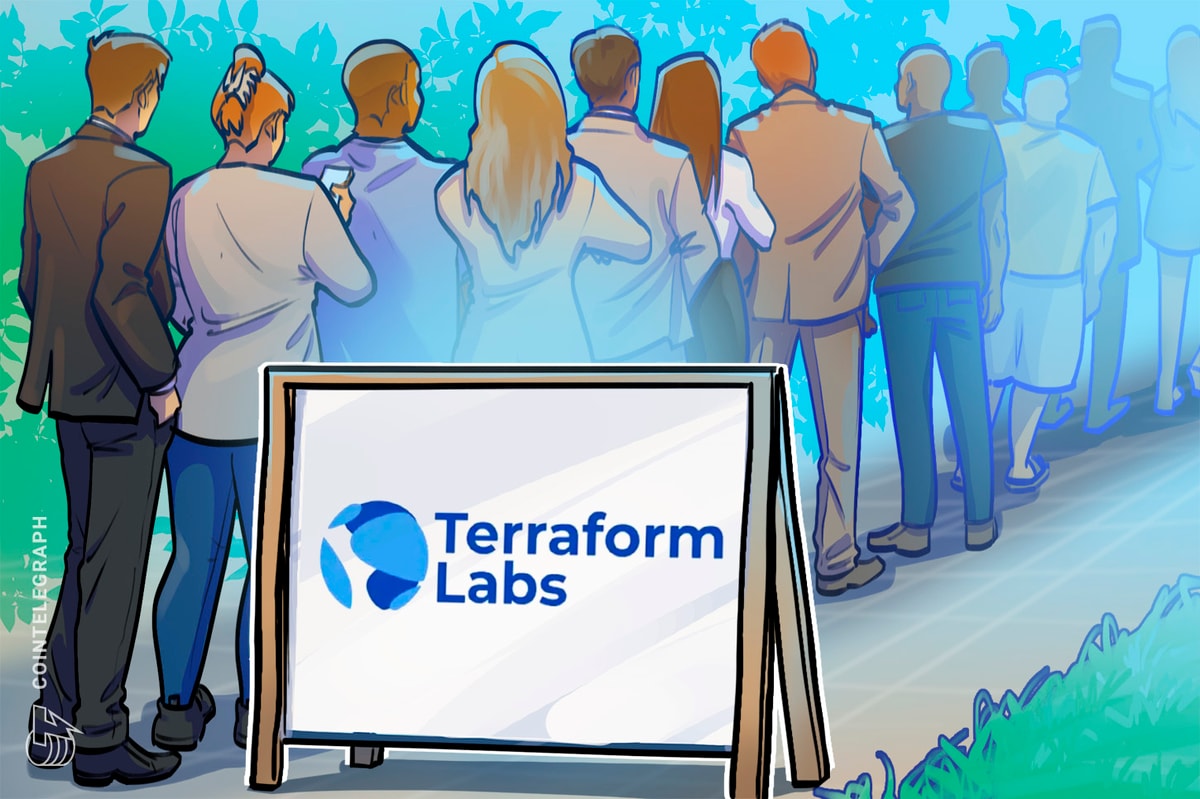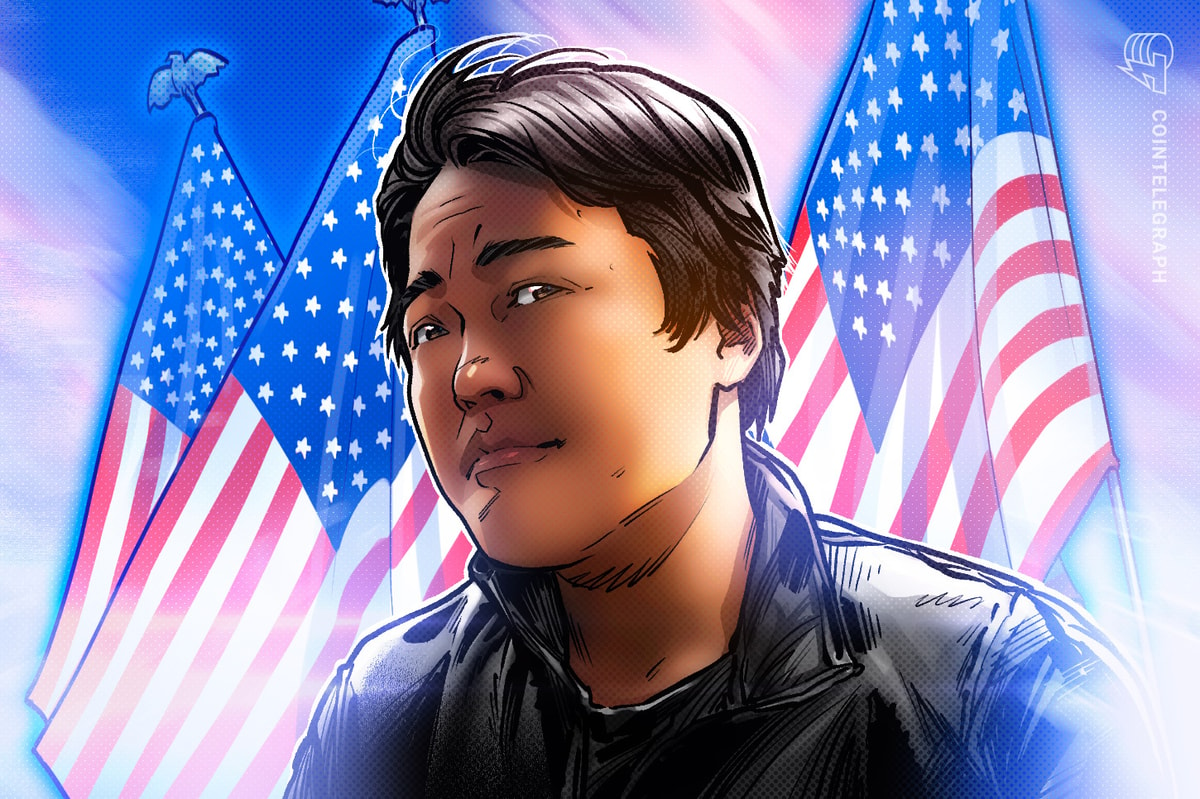Kwon Do-Hyung, known as Do Kwon, is the co-founder and CEO of Terraform Labs, a Singapore-based blockchain development company. He is widely known for spearheading the creation of the Terra crypto ecosystem project, which collapsed in May 2022.
Born in Seoul, South Korea, on Sept. 6, 1991, he grew up in the city and attended a local private school called Daewon Foreign Language High School.
Do Kwon’s achievements
After high school, in 2010, Kwon went to the United States to study computer science at Stanford University. His programming background allowed him to venture into the crypto and tech industries.
He graduated from Stanford in 2015 and returned to South Korea in 2016, where he founded a connectivity solutions business venture called Anyfi. With the help of angel investors, Kwon raised $1 million in grants for the startup. Anyfi used a peer-to-peer Wi-Fi mesh network model to distribute network bandwidth to its users.
While at the company, Kwon learned about cryptocurrencies and soon noticed innovation opportunities in the then-nascent crypto market. He observed that the industry lacked robust crypto payment networks, which limited the adoption rate and hindered “real use” value.
Subsequently, he co-authored a white paper with Nicholas Platias, a college acquaintance, explaining how a decentralized payment system powered by a stablecoin would help to facilitate cryptocurrency payments and allow digital currencies to be used as a medium of exchange. In the paper, Kwon argued that such a cryptocurrency would also help to overcome digital currency volatility.
The white paper soon caught the attention of Daniel Shin, a South Korean tech entrepreneur. Shin had significant experience in online payment systems, so in 2018, he joined forces with Kwon to form a new company called Terraform Labs.
Terraform Labs developed the Terra (LUNA) cryptocurrency the same year.
The Terra collapse
In September 2020, Terraform Labs unveiled the TerraUSD (UST) algorithmic stablecoin, which was pegged to the U.S. dollar. The stablecoin was backed by the LUNA token, which theoretically helped maintain the stablecoin’s dollar value. However, the two cryptocurrencies collapsed in May 2022 when UST depegged from the dollar after a series of outsized selloffs by investors.
The occurrence caused both coins to lose over 99 percent of their value due to dwindling investor confidence, resulting in the obliteration of approximately $40 billion in direct investments. The unprecedented collapse of the Terra cryptocurrencies also caused broader crypto market volatility. Approximately half a trillion dollars in market capitalization was lost.
The events led to a flurry of accusations from critics who accused Terraform Labs and Do Kwon of negligence. Many pointed to the Terra ecosystem as inherently unstable, as the TerraUSD algorithmic stablecoin lacked any tangible assets as collateral.
It depended on a complex network of arbitrageurs to manage the intricate transactions between TerraUSD and LUNA tokens needed to maintain the stablecoin value. Unfortunately, the weaknesses of this system were magnified when a significant number of investors began to sell their TerraUSD and LUNA tokens, causing the Terra ecosystem to crumble.
In an attempt to revive the Terra ecosystem, Kwon unveiled the new blockchain dubbed Terra 2.0 in May 2022. The new blockchain launched with a new asset, also called LUNA. However, the new token ran atop a new non-algorithmic chain, and plans included airdropping the new asset to certain Terra ecosystem participants. Despite the revamp, Terra 2.0 performed abysmally due to battered investor confidence.
The original Terra blockchain became Terra Classic, with its asset called Luna Classic (LUNC). TerraUSD also became TerraUSD Classic (USTC).
The authorities search for Do Kwon
Following the Terra collapse, authorities in the United States and South Korea started investigating Do Kwon and Terraform Labs for failing to disclose the potential risks of their investment products to investors. Consequently, in September 2022, a court in South Korea issued an arrest warrant for the Terraform Labs co-founder, along with five other people associated with Terra.
At the time, Kwon denied allegations that South Korean prosecutors had tried to contact him or charged him with financial crimes, even though the authorities had barred Terraform Labs employees from leaving the country. Kwon was reportedly residing in Singapore when investigations by South Korean authorities began.
However, Singapore authorities soon issued a statement indicating that Kwon was no longer in the country. All the while, the controversial tech CEO denied claims he was on the run from the authorities. In an interview on the Unchained Podcast, Kwon asserted that he moved from South Korea to Singapore before the Terra collapse.
Unable to trace his whereabouts, South Korean authorities solicited the help of Interpol. Subsequently, the international police organization issued a provisional Red Notice for the arrest of Kwon pending extradition.
In December 2022, a spokesperson for the Seoul Southern District Prosecutors’ Office issued an update indicating that the beleaguered crypto exec had moved from Singapore but was still running the Terra protocol while on the run.
According to the statement, Kwon was believed to be in Serbia, and the prosecutors’ office was working with the Serbian government to have him arrested and deported.
Charges against Kwon and his arrest
In February 2023, the U.S. Securities and Exchange Commission (SEC) charged Do Kwon and Terraform Labs with securities fraud. According to the complaint filed by the agency, Terraform Labs and Do Kwon created a fraudulent scheme that caused investors to lose billions of dollars.
Through his lawyers, Kwon sought to have the charges dismissed, arguing the SEC’s claims were invalid and that the agency’s classification of the LUNA, Mirror Protocol (MIR) and TUSD tokens as securities was misinformed.
In March 2023, Kwon was arrested in Montenegro alongside his associate Han Chang-Joon, the former chief finance officer at Terraform Labs. Kwon was arrested as he and his associate tried to board a flight to Dubai at Podgorica airport using false documents. According to the police report, falsified Costa Rican and Belgian passports, laptops and other devices were found in their luggage.
Initially, a Montenegrin court charged them with using fake identity documents and subjected them to a 30-day pre-trial detention. After the temporary detention, Kwon and Han were sentenced to four months in prison for using false documents. Both defendants denied the charges.
In June, they were granted bail set at 400,000 euros ($440,320) and placed under house arrest. Following his arrest in March, the U.S. District Court for the Southern District of New York announced an eight-count indictment against Kwon, including commodities fraud, securities fraud, conspiracy and wire fraud. U.S. and South Korean authorities have since sought the extradition of Kwon to face a litany of charges.

How rich is Do Kwon?
Do Kwon has an estimated net worth of about $135 million as of July 2023. Much of his wealth has been amassed through his crypto industry activities, particularly the Terra blockchain project. At its peak, the project reached a $60 billion valuation.
Do Kwon’s net worth reached its apex in April 2022, when the value of LUNA, the native token of the Terra blockchain, soared to $119. At 30, his net worth was estimated to have reached an astounding $4 billion. The almost overnight fortunes catapulted him into the ranks of one of the most distinguished persons in the cryptocurrency industry.
His fortunes soon turned when Terra collapsed just one month later, with the tumultuous events resulting in a significant decline in Kwon’s net worth. Nevertheless, Kwon remains in possession of substantial crypto assets. The extent of Kwon’s liquid assets, however, remains unclear.
Kwon’s public persona
Over the years, do Kwon’s public persona has been aptly described as caustic and dismissive due to his penchant for making incendiary remarks, especially when responding to critics. Before the Terra collapse, Kwon sometimes dismissed his social media detractors with classist slurs like, “I don’t debate the poor.”
That said, he had amassed a sizable followership comprising passionate LUNA investors who referred to themselves as “LUNAtics.”
In the wake of the catastrophic UST collapse, Kwon’s public image was marred by accusations of fraud and negligence. Nicknamed the “Cryptocrash king” by critics due to how he handled the Terra collapse, he came under intense scrutiny, with an overwhelming consensus among many in the crypto community that the calamity could have been averted through more judicious actions.
Kwon has, on numerous occasions, proclaimed that he did his best in trying to salvage the Terra ecosystem from the dire straits it faced.
Written by Elizabeth Gail










